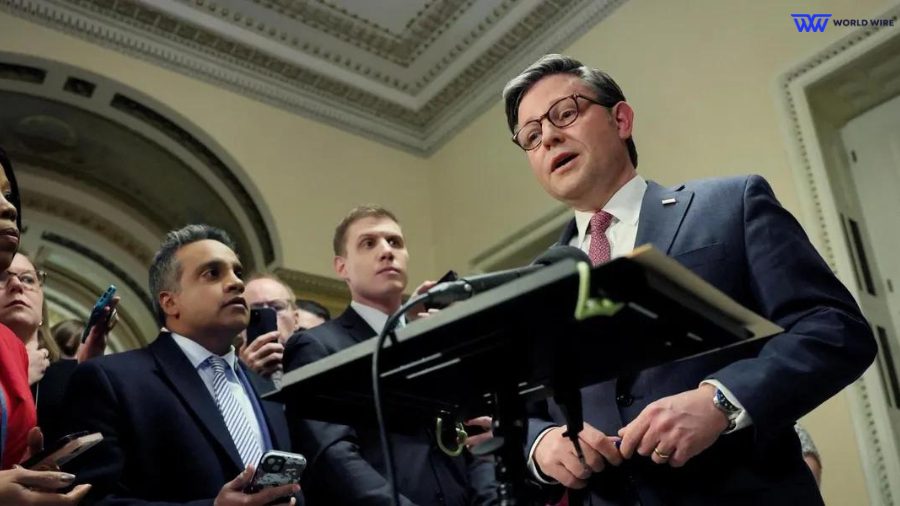On Tuesday, The Senate passed a $95 billion foreign aid bill, which is awaiting house decision.
Let’s read the news and find out what’s happeing .
Senate Clears $95 Billion for Ukraine and Israel, Awaiting House Decision
The bill concluded a long-running debate that exposed major cracks within the Republican Party’s foreign policy. The funding bill is sent to the House by a vote of 70-29.
However, House Speaker Mike Johnson has stated that his chamber will not consider the legislation since it does not include provisions for border security.
If approved, $60 billion would be allocated by the program to help Ukraine, which has been at war with Russia since February 2022.
The bill passsed after Senate Confronts Challenge with Ukraine Aid Legislation.
In addition, it would provide Israel with $14 billion in support for the military, $9 billion as humanitarian aid to Gaza, and about $5 billion to defend Taiwan.
The majority of Democrats and Senate Minority Leader Mitch McConnell support the bill because they believe Russian President Vladimir Putin poses a threat to European democracy.
They contended that if Ukraine successfully kept Russia at bay, it might avert American forces’ need to intervene.
After the bill was passed, Senate Majority Leader Chuck Schumer stated on the Senate floor, “If we want the world to remain a safe place for freedom, for democratic principles, and for our future prosperity, then America must lead the way.”

He added, “And with this bill, the Senate declares that American leadership will not waver.”
The Republican senator from Utah, Mitt Romney, referred to it as “the most important vote we will ever take as United States senators.”
President Joe Biden, Via a spokesman, encouraged the House to move the bill immediately to his desk. According to White House press secretary Jean-Pierre, “the costs of inaction are rising every day.”
Pierre added, “American leadership matters, and the world is watching − watching what the House Republicans do.”
In a video, Volodymyr Zelenskyy, Ukraine’s president, has been seen praising the Senate’s decision. Zelensky stated, “The world is looking for American leadership to remain steadfast, help protect lives, and preserve freedom.”
But most Senate Republicans were against moving the aid forward. They expressed concerns about mounting federal debt and an unwillingness to spend taxpayer money to fund a war in another nation while there are more pressing issues at home.
Sen. Rand Paul, a Republican from Kentucky, spearheaded efforts to delay the bill’s approval, arguing that “we ought to be taking care of America’s problems before we take care of the world’s problems.”
Even though just last week, Republicans rejected an agreement to make significant changes to migration policy.
Many Republicans who now voted against the bill are claiming that it lacked a plan to secure the southern border of the United States.
One of the main negotiators on the failed border agreement, Sen. Kyrsten Sinema of Arizona, commented on Monday night that Republicans could “build a time machine” if they wanted aid with a border package.
Trump’s viewpoint on the bill affected the discussion, much like it did with the bipartisan border agreement that came before it.
Trump’s remarks at a South Carolina campaign event, where he threatened to “encourage” Russia “to do whatever the hell they want” if NATO partners fail to contribute the agreed-upon 2% of their GDP to military readiness.
Trump also stated on Truth Social that the United States needs to cease providing aid to other countries “without the hope of a payback.” As the final vote drew nearer, some Republicans were influenced by the idea.
The bill will now encounter a challenging path in the House even though it passed the Senate.
With Johnson pledging to reject it, Democrats and centrists in the House are left with only one option, which is to force consideration through a discharge petition, which would need a small number of Republicans to join with Democrats to obtain 218 signatures.
Though the chances for success are thin, moderate Republicans have already started to argue in favor of the measure. At the same time, Democrats have vowed to use “every available legislative tool” to force a vote.







Add Comment